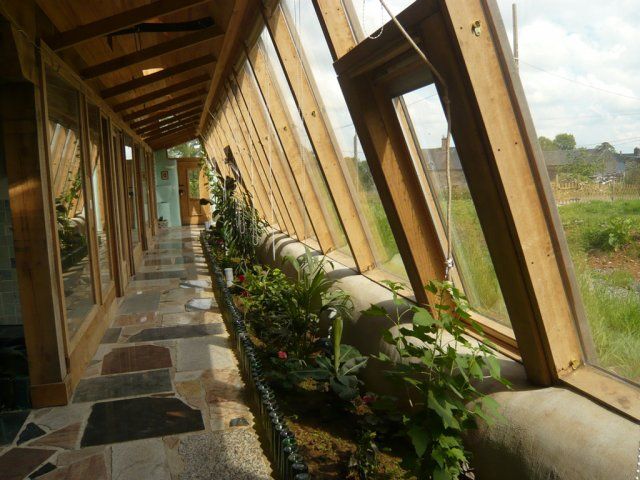With environmental concerns escalating, it has become critical for all of us to make environmentally conscious decisions about the world we live in and how we live there.
One movement gaining popularity is off grid living that strives to reduce waste by cutting connections with utilities like electricity from power stations or sewage systems.
Off Grid living focuses on achieving independence, being self-sufficient and leading a sustainable lifestyle; its goal is to have minimal ecological footprints while still maintaining modern comfort standards for quality of life.
It embraces nature as a resource instead of a burden.
People can live off the grid without giving up luxuries such as heating during winter or entertainment in the form of Netflix, through using environmentally friendly technologies like solar energy systems and water harvesting tanks; they also grow some produce on site to avoid carbon footprint associated with industrial farming methods.
Do you have any specific questions regarding off-grid living’s sustainable approach?
I would love to address them!
Determine your priorities
Before starting your off-grid journey, consider what modern comforts are essential to your well-being and what can be sacrificed. This will help you balance your needs with your sustainable goals.
This reflection will help you strike a balance between your needs and sustainable goals.
Start by evaluating your basic needs, such as access to clean water, a reliable source of energy, and a sanitary living environment.
Next, consider the comforts that bring you joy and fulfillment, like connectivity with loved ones, access to books and entertainment, or the ability to cook a variety of meals.
Once you have identified your essential comforts, you can begin to prioritize which can be sustained while still achieving your off-grid objectives.
For instance, you may choose to sacrifice luxuries like cable TV or frequent travel in favor of maintaining a reliable energy source, such as solar panels, and a healthy water supply.
By carefully considering your needs and priorities, you can create an off-grid lifestyle that is both sustainable and fulfilling.
Use renewable energy
Invest in renewable energy sources such as solar or wind power to reduce your reliance on non-renewable energy sources. This will not only lower your carbon footprint but also provide a reliable source of power for your modern comforts.
Investing in renewable energy sources such as solar or wind power is a smart and sustainable decision that can significantly reduce your reliance on non-renewable energy sources.
By harnessing the power of the sun and wind, you can generate electricity and provide a reliable source of power for your modern comforts.
Not only does this lower your carbon footprint and help combat climate change, but it also provides a hedge against rising energy costs and reduces your dependence on finite resources.
Renewable energy sources are becoming increasingly cost-competitive with fossil fuels, making the investment even more attractive.
In fact, according to the Solar Energy Industries Association, the cost of solar energy has fallen by 69% in the last decade, making it more accessible and affordable for homeowners and businesses.
By investing in renewable energy, you can not only reduce your carbon footprint but also save money on your energy bills while providing a sustainable source of power for your modern comforts.
Implement water conservation measures
Use water-efficient appliances and implement conservation measures such as rainwater harvesting to reduce your water usage. This will not only save you money but also reduce your impact on the environment.
Using water-efficient appliances and implementing conservation measures like rainwater harvesting can significantly reduce your water usage, which not only saves you money on your water bills but also helps reduce your impact on the environment.
For instance, installing low-flow showerheads and toilets can save up to 2.5 gallons of water per day, while using a dishwasher with a water-saving cycle can conserve up to 30 gallons of water per day.
Similarly, rainwater harvesting systems can collect and store rainwater for flushing toilets, washing clothes, and other non-potable uses, reducing the amount of potable water consumed.
By adopting these water-saving measures, you can not only reduce your water bills but also contribute to preserving our precious water resources for future generations.
Moreover, many utility companies offer incentives for installing water-efficient appliances and rainwater harvesting systems, making it an even more cost-effective solution.
So, take the initiative today to implement these measures and make a positive impact on the environment!
Employ smart home technology
Incorporate smart home technology into your off-grid living space to optimize energy efficiency and automate certain tasks. This can include features like intelligent lighting and temperature control, as well as appliances that communicate with each other to optimize energy use.
Incorporating smart home technology into your off-grid living space can significantly optimize energy efficiency and streamline your daily routines.
With intelligent lighting and temperature control systems, you can adjust the ambiance of your home to suit your needs, all while ensuring that energy is being used wisely.
For instance, smart bulbs can adjust their brightness and color based on the time of day, and can even turn off automatically when natural light is sufficient.
Similarly, smart thermostats can learn your temperature preferences and adjust the heating and cooling accordingly, all while factoring in factors like solar gain and outdoor temperature.
Moreover, by integrating smart appliances into your off-grid home, you can automate various tasks and optimize energy use.
For example, smart washing machines and dishwashers can detect when they can run during off-peak hours, when energy is cheaper or when renewable energy sources are available.
Smart sensors can detect when you are away from home and adjust the lighting, heating, and cooling accordingly, further reducing energy waste.
By investing in smart home technology, you can ensure that your off-grid living space is not only sustainable but also comfortable and convenient.
Use eco-friendly building materials
Choose building materials that are sustainable, locally sourced, and low-maintenance. This will not only reduce your environmental impact but also save you money in the long run.
When it comes to building or renovating a home, choosing the right building materials is a important decision that can have a lasting impact on the environment and your wallet.
By opting for sustainable, locally sourced, and low-maintenance materials, you can not only reduce your environmental footprint but also save money in the long run.
Sustainable materials such as reclaimed wood, bamboo, and low-VOC paint are not only better for the environment, but they can also be more durable and require less maintenance over time.
Locally sourced materials, such as those obtained from local quarries or suppliers, can also reduce transportation emissions and support local economies.
Low-maintenance materials such as composite decking, brick, and stucco can save you money on upkeep and repairs over the years.
By making these eco-friendly choices, you can enjoy a more sustainable and cost-effective home for years to come.
Incorporate indoor plants
Indoor plants can not only purify the air and improve your mental health, but they can also help regulate the temperature and humidity in your home. This will reduce your reliance on artificial heating and cooling systems.
Indoor plants are not only aesthetically pleasing and air-purifying, but they can also play a important role in regulating the temperature and humidity of your living space.
By strategically placing plants throughout your home, you can harness their natural ability to absorb moisture and heat from the air.
For example, plants like the Spider Plant, Snake Plant, and Peace Lily are excellent at removing excess moisture from the air, which can help prevent mold growth and reduce the risk of airborne allergens.
Plants like the Boston Fern and English Ivy can help keep your home cool by absorbing heat from the air and converting it into oxygen.
By integrating these plants into your home’s decor, you can not only purify the air and improve your mental health, but you can also reduce your reliance on artificial heating and cooling systems.
This can help you save money on your energy bills while also creating a more comfortable and sustainable living environment.
Prioritize natural lighting
Use large windows and skylights to maximize natural lighting in your home. This will not only reduce your reliance on artificial lighting but also improve the overall ambiance of your space.
One of the most effective ways to improve the lighting in your home is to use large windows and skylights to maximize natural lighting.
Not only does this reduce your reliance on artificial lighting, but it also creates a brighter and more inviting space.
Natural lighting has a profound impact on the ambiance of your home, creating a warm and welcoming atmosphere that can improve your mood and overall well-being.
Natural lighting can also help to enhance the aesthetic appeal of your space by illuminating architectural features and decorative elements.
By incorporating large windows and skylights into your home design, you can create a bright and airy space that is both functional and beautiful.
Embrace minimalism
Adopting a minimalist lifestyle can help you prioritize what’s truly important and reduce your reliance on consumer goods. This approach can also save you money, reduce waste, and improve your mental well-being.
Adopting a minimalist lifestyle can have a profound impact on your life, prioritizing what truly matters, and reducing your reliance on consumer goods.
By letting go of material possessions and focusing on experiences and relationships, you can free yourself from the burden of constant consumption and the stress of maintaining a large collection of belongings.
This approach not only saves you money but also reduces waste and supports a more sustainable future.
Moreover, a minimalist lifestyle can improve your mental well-being by promoting mindfulness and gratitude for what you already have.
By intentionally curating your possessions and living with less, you can create a more intentional, simplified life that aligns with your values and priorities.
Embrace the power of minimalism and discover a more fulfilling life, unencumbered by the unnecessary and the superfluous.
Want More? Dive Deeper Here!
Hey there! If you’re the type who loves going down the rabbit hole of information (like we do), you’re in the right spot. We’ve pulled together some cool reads and resources that dive a bit deeper into the stuff we chat about on our site. Whether you’re just killing time or super into the topic, these picks might just be what you’re looking for. Happy reading!






